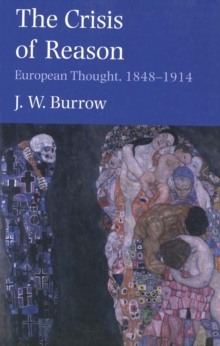
Medieval Foundations of the Western Intellectual Tradition Paperback / softback
by Marcia L. Colish
Part of the Yale Intellectual History of the West Series series
Paperback / softback
Description
This magisterial book is an analysis of the course of Western intellectual history between A.D. 400 and 1400. The book is arranged in two parts: the first surveys the comparative modes of thought and varying success of Byzantine, Latin-Christian, and Muslim cultures, and the second takes the reader from the eleventh-century revival of learning to the high Middle Ages and beyond, the period in which the vibrancy of Western intellectual culture enabled it to stamp its imprint well beyond the frontiers of Christendom. Marcia Colish argues that the foundations of the Western intellectual tradition were laid in the Middle Ages and not, as is commonly held, in the Judeo-Christian or classical periods.
She contends that Western medieval thinkers produced a set of tolerances, tastes, concerns, and sensibilities that made the Middle Ages unlike other chapters of the Western intellectual experience.
She provides astute descriptions of the vernacular and oral culture of each country of Europe; explores the nature of medieval culture and its transmission; profiles seminal thinkers (Augustine, Anselm, Gregory the Great, Aquinas, Ockham); studies heresy from Manichaeism to Huss and Wycliffe; and investigates the influence of Arab and Jewish writing on scholasticism and the resurrection of Greek studies.
Colish concludes with an assessment of the modes of medieval thought that ended with the period and those that remained as bases for later ages of European intellectual history.
Information
-
Available to Order - This title is available to order, with delivery expected within 2 weeks
- Format:Paperback / softback
- Pages:448 pages, 24 b-w illus.
- Publisher:Yale University Press
- Publication Date:08/02/1999
- Category:
- ISBN:9780300078527
Information
-
Available to Order - This title is available to order, with delivery expected within 2 weeks
- Format:Paperback / softback
- Pages:448 pages, 24 b-w illus.
- Publisher:Yale University Press
- Publication Date:08/02/1999
- Category:
- ISBN:9780300078527









